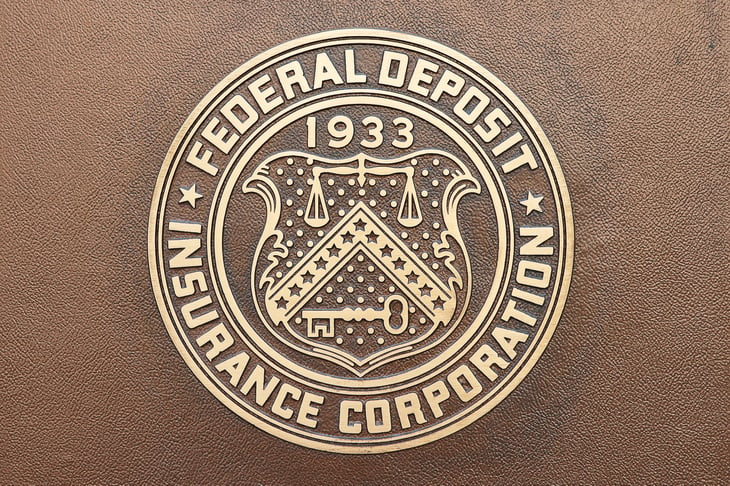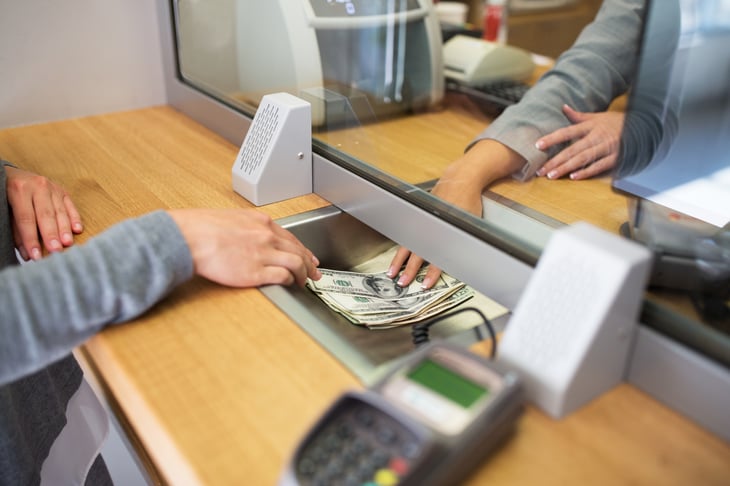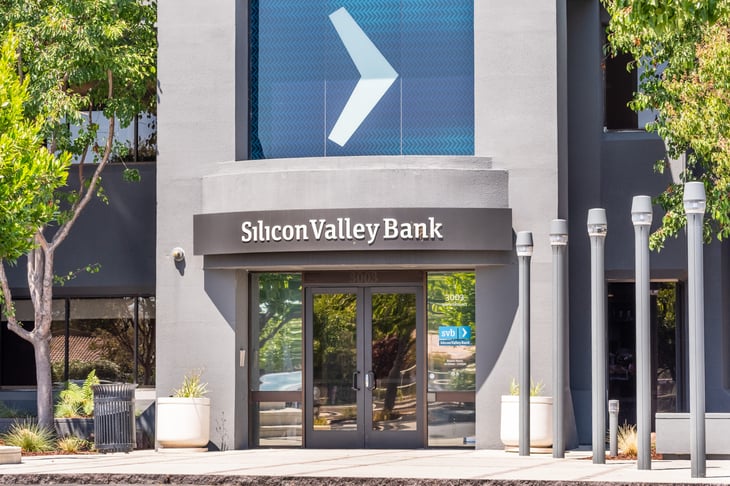
Editor’s Note: This story was written by Lauren Toms from partner site MoneyCrashers.
If you’ve been following the news this year, you might have heard about bank runs: Silicon Valley Bank, Signature Bank and First Republic in the U.S. and Credit Suisse internationally. And it’s understandable if you’re spooked.
A bank run happens when many — if not most — of a bank’s customers try to withdraw their money all at once, either because they’re worried the bank might go out of business or they’ve heard rumors about the bank’s financial health. Bank runs can be very stressful for both the bank and its customers and can have big effects on the economy as a whole.
Fortunately, there are things you can do to protect your money now so a bank run doesn’t ruin your day or your net worth.
Keep your money in a federally insured bank

One of the best ways to protect your money during uncertain times is to keep it in a federally insured bank. That means your deposits are insured up to $250,000 per depositor by the Federal Deposit Insurance Corporation (aka FDIC) or National Credit Union Administration (for credit unions).
If the bank fails, you won’t lose your money so long as you don’t have more than the insured amount in all your accounts with that bank.
To find out if your bank is federally insured, you can look for the FDIC or NCUA sign at your bank or credit union or ask a representative. You can also check the FDIC’s online database, BankFind, to verify if your bank is insured.
Don’t make assumptions. Some banks are uninsured, so it’s important to do your research and ensure your money is protected. Some banks or credit unions may also have private insurance. But it’s not backed by the U.S. government and is subject to the rules of the bank’s underwriter.
In addition to providing insurance for your deposits, using a federally insured bank also comes with other benefits. For example, federally insured banks must comply with certain regulations that protect consumers and promote stability in the financial system. Theoretically, that means that your money is more secure and less likely to be at risk in the event of a bank failure.
Diversify your wealth

Diversifying across different banks and credit unions is an important step to protect your money during uncertain times. That means spreading your money across different FDIC- and NCUA-insured institutions, with no more than $250,000 in each account.
That serves two purposes. One, the more banks you have, the more likely you are to have at least one unaffected by bank runs. They tend to spread, meaning that if one bank starts to fail people start worrying about others, which results in a run on others.
Two, it ensures that if the worst does happen and the bank becomes insolvent, you have a better shot of having at least one bank remain unscathed — meaning you still have money in at least one account to keep paying bills and living life.
And diversification doesn’t just apply to the rich and powerful. Even if you only have a few thousand dollars in the bank, keep it in at least two different institutions. Otherwise, you could temporarily lose access to all your cash between the moment the bank stops processing withdrawals and the moment the FDIC steps in — which can take a few days.
For example, maybe keep half in a longstanding bank like Chase and the other in a neobank like Chime (which importantly has no connection to Chase). By diversifying across different banks, you reduce the risk of losing access to all your money at once.
Stay informed and be prepared

Staying informed about your bank’s financial health is a key part of protecting your money during uncertain times. Regularly check your bank’s financial statements and reports, which are usually available online or in-branch. These reports can give you insight into your bank’s financial performance and stability.
Another way to stay informed is to pay attention to the news and any announcements your bank makes. That can help you stay up to date on any changes or developments that may affect your bank’s stability. But if you hear any rumors or concerns about your bank’s financial health, it’s important to verify them before taking any action.
In addition to staying informed, it’s important to be prepared in case of a bank run. That means creating a plan to protect your money and ensure you have access to funds when you need them.
One way to do that is to keep a small amount of emergency cash on hand at all times. How much you keep depends on what you think you might need, how big an emergency you’re planning for, and whether you have a safe place to keep it.
Some people, especially those with several banks, may just want a few hundred dollars on hand in case there’s an immediate issue. Others may want an entire month’s worth of money in case the worst happens.
But neither of those is a good idea if you don’t have a safe place to store it. Technically, you could use a safe deposit box. But bank branches might close if the bank goes under, severing your access to those funds.
In lieu of that, think of a safe place in your home where you can keep it away from the prying eyes of houseguests and burglars alike. Ideally, it would be inside a fireproof, waterproof safe in case of natural disaster.
Keep calm and don’t panic

During a bank run, it’s natural to feel scared and uncertain. However, panicking can actually make the situation worse and put you at greater financial risk.
One danger of panicking is that you may withdraw too much money too quickly, leaving you without enough funds to cover your expenses and causing any automatic payments to bounce. Additionally, withdrawing large amounts of money can contribute to the bank’s instability and potentially make the situation worse for everyone involved.
To stay calm and make rational decisions during uncertain times, go back to your plan — and maybe even have a backup plan in case it’s worse than you thought or happens faster than you predicted.
One way to stay calm is to focus on the things you can control, such as your own finances and your own actions. That means avoiding rumors and speculation, and instead relying on verifiable facts and information.
Another way to stay calm is to remember the importance of having a long-term financial plan. By focusing on your goals and priorities, you can avoid making hasty decisions.
Final word

Bank runs can be a scary and uncertain time for both banks and their customers. However, by taking proactive steps to protect your money, you can minimize your risk and safeguard your finances.
By taking action now, you can protect yourself and ensure you have access to funds when you need them. Remember, it’s always better to be safe than sorry when it comes to your money.





Add a Comment
Our Policy: We welcome relevant and respectful comments in order to foster healthy and informative discussions. All other comments may be removed. Comments with links are automatically held for moderation.